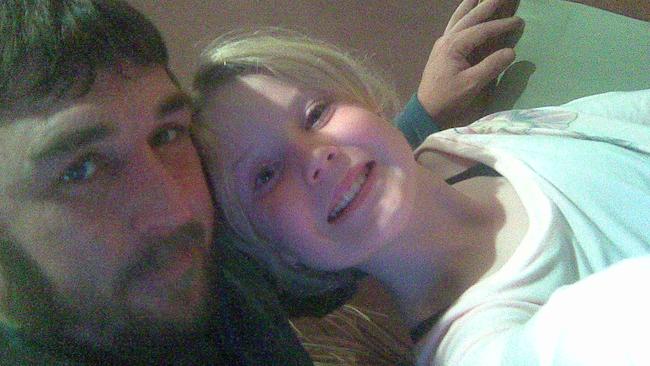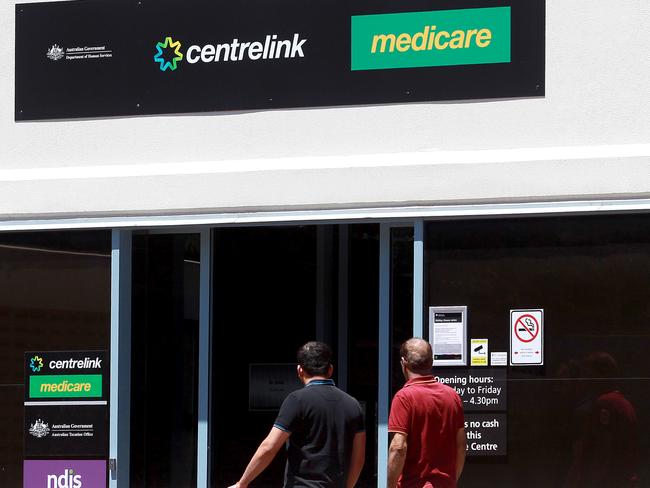‘The man in a box’: Inaccurate Centrelink debt letter sent James into meltdown
JAMES’ schizophrenia is so severe he sometimes can’t even walk down the road, but holds down a job. Then came a $7000 debt.

JAMES Keygan describes himself as “a man in a box”.
The 47-year-old Tasmanian has schizophrenia that is so severe he sometimes struggles to even walk down the street.
He also suffers from post-traumatic stress disorder, anxiety, depression and obsessive compulsive disorder.
James has managed to hold down a supported work placement cleaning and gardening, but also relies on his disability pension. So when Centrelink told him just before Christmas he owed $7000, plus $600 in interest and fees, he went into meltdown.
“A lot of stuff I can’t grasp and I get upset,” he told news.com.au. “I was going to accept it. I don’t know how to argue with this stuff.
“It blew me out of the water. If I wasn’t lucky enough to have someone in that supportive role, I’d probably be paying the debt. I am that stupid and I’m tired. I felt trapped.”
Fortunately, his ex-partner Tamara Lawson, with whom he has a 14-year-old daughter, contacted Centrelink for him and discovered a system error had generated an inaccurate debt. It was reduced to just a few hundred dollars.
“If he sets a good routine he can do pretty well but anything outside of his routine sends him into chaos,” Tamara told news.com.au. “He’s stuck.
“This is a very sick man. He’s been hospitalised before. It had been a very bad year.
“He was told a debt for several thousand dollars has been raised for the period of July 2014 to July 2016. He and I both know that he reported all of his earnings within this period.
“They said, ‘we can’t give you your advance, you have a debt of more than $7000’. He rings me and goes into meltdown.”

James had planned to use his advance to buy their daughter Lillie’s Christmas presents.
“He was a mess,” said 36-year-old Tamara, adding that he wouldn’t answer the phone to her until she was beside herself with worry.
She called Centrelink and found out system appeared to think James had two separate employers, when in fact it was the same one, listed under a different name by the Australian Taxation Office.
This glitch is one of several that have caused inaccurate debt letters demanding thousands of dollars to be sent to vulnerable Australians by the benefit program’s automated system.
The information watchdog is set to investigate complaints welfare recipients have been wrongly hounded over debts because of faults with Centrelink’s data matching system.
Claimants say the system has also been going back and averaging out their annual income over every fortnight of a year, failing to recognise that they were not working for some months of that year and therefore entitled to unemployment benefits.
In many cases, it has old addresses for users, so they have no idea about the supposed debt until it is too late, and private debt collection agencies used by Centrelink have already taken the reins.
Centrelink’s automated system, which has ramped up since October, is now sending 20,000 review letters about supposed discrepancies each week, with scores of Australians — including people with cancer — telling news.com.au of the anxiety, stress and even suicidal thoughts prompted by the debt letters that dropped through their mailboxes just before the festive period.

They say the agency’s phone lines are clogged, queues at branches are huge and staff members are often unable to help — as in Linda Steven’s case.
The NSW pensioner, who has a heart condition, was told to start paying back a non-existent debt of $8500 until her review is complete, a process that could take months.
Catherine Hehir, from Brisbane, told news.com.au she was also told to start a payment plan before her review was complete to avoid being taken to a debt collector — but unlike Linda, she refused. The 27-year-old spent a month chasing up employers from five years ago and trying to sort out the issue online and by phone.
“I couldn’t imagine any pensioner, person with a disability or illness trying to manoeuvre this system,” she said.
Indeed, 36-year-old Colleen McCormack, a healthcare worker from Melbourne who has had multiple surgeries and suffers with mental health issues, told news.com.au her “first thought was suicide”.
Independent MP Andrew Wilkie said he had heard from countless “terrified” constituents, at least four of whom said they were suicidal. Centrelink has even been tweeting the Lifeline phone number for people in crisis as it was bombarded with complaints over the Christmas break.
But Department of Human Services general manager Hank Jongen said it was “a long-established process” to offer at-risk customers contact details for social workers and at times Lifeline, who can help when Centrelink is closed.
IT expert Justin Warren told news.com.au that human oversight had been removed from the system, leaving the burden of fixing the errors on the users.
The government’s former chief digital officer Paul Shetler, who resigned in November after being hired to transform its approach to technology, told news.com.au “the root cause of these failures is a deskilled public service that doesn’t understand — and sometimes fears — 21st century technology.”

But Social Services Minister Christian Porter said the system was “working as intended”. The government has announced it will claw back $400 million in unemployment benefit overpayments through the review process, despite calls from Labor for the system to be suspended while the problems are fixed.
Mr Porter said 20 per cent of review letters were sent to people who did not owe anything but these were not debt letters and only asked for more information to explain a discrepancy between employment data held by Centrelink and the ATO.
“The rate of error is measured in terms of finally issued debts being raised but overturned and present indications are that this will be less than 1.6 per cent,” he told news.com.au in a statement.
“If there is a difference between the information reported to Centrelink and the information reported to the ATO the government owes an obligation to the Australian taxpayer to seek clarification.
“This is critical to ensuring the integrity of the welfare system.
“The decision-making rules used to identify noncompliance and identify debt after explanations have been received are well established and have not been altered in the automated system.”
As for James, he’s “lucky” he had someone close to him to help, says Tamara. “Otherwise he’d just have paid the money. His head would have just spun and he would have withdrawn from society.
“People with a severe mental illness won’t reach out to services. They’ll stay in their box, harm themselves, withdraw. The government is targeting vulnerable people who don’t have the capacity to deal with it.”
If you or someone you know needs help, contact Lifeline on 13 11 14.



